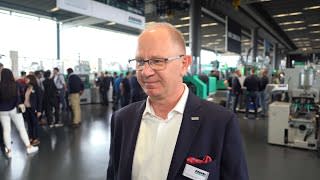 Bayer intends to significantly expand its capacities for the production of high-grade materials in China by 2016. Investments of around EUR 1 billion are planned at the Shanghai site.
Bayer intends to significantly expand its capacities for the production of high-grade materials in China by 2016. Investments of around EUR 1 billion are planned at the Shanghai site. This means Bayer will focus even more intensively on the Asia/Pacific region, where it expects consistent growth in its customer industries. Capacities for the polyurethane raw material MDI are to be more than doubled to one million metric tons a year and for high-performance polycarbonate to 500,000 t/y. The company also intends to significantly strengthen its research and development activities there. Moreover, the headquarters of the Polycarbonates Business Unit will be relocated from the main Leverkusen site to Shanghai. The intention is to ensure even greater proximity to the booming polycarbonates market in Asia.
“The expansion of our capacities in China is an important step in strengthening our presence in the emerging economies,” explained Bayer AG’s Management Board Chairman, Dr. Marijn Dekkers. “We want to increase Group sales in Greater China to around EUR 5 billion by 2015. MaterialScience is expected to contribute at least half of this amount.” In fiscal 2009, the Bayer Group in Greater China recorded sales of EUR 2.1 billion, of which EUR 1.2 billion was accounted for by MaterialScience.
“The strong economic growth in China and in the whole region offers us outstanding opportunities, and we want to make the most of them,” added Patrick Thomas, CEO of Bayer MaterialScience. “For us, it is strategically important to have the necessary capacities in the Asia/Pacific region to meet constantly rising demand.”
Thomas emphasized that this was one of the biggest single investments to date for Bayer MaterialScience. In terms of sales, China is the second most important country in the world for the Bayer subgroup. It is already investing EUR 2.1 billion in Shanghai as part of a long-term project lasting until 2012. Together with the now announced expansions, this means a total investment of more than EUR 3 billion. For these new projects, a memorandum of understanding has now been signed with the relevant authorities.
Five separate projects are planned – in cooperation with Bayer Technology Services – to increase production capacity at the Shanghai Chemical Industry Park. For polycarbonate, a new facility is scheduled to be built with a capacity of 200,000 metric tons a year. In addition, it is planned to increase the capacity of the existing plant by 100,000 to 300,000 t/y. The Asia/Pacific region currently accounts for around 60 percent of the world's total polycarbonate market, with the greatest demand coming from China. The plastic is used predominantly in the automotive, electrical and electronics, and construction industries.


